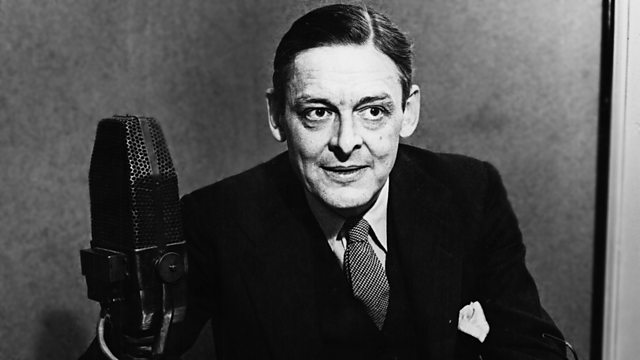
TS Eliot's India: Many Gods, Many Voices
Poet Daljit Nagra explores the often overlooked Indian element to TS Eliot's poetry.
Poet Daljit Nagra explores the often overlooked Indian element to T.S Eliot's poetry.
T.S Eliot once wrote that the great philosophers of India "make most of the great European philosophers look like schoolboys". And although he's more often remembered as an establishment figure, somewhat conservative and deeply Christian, Eliot also wrote about and studied Indian philosophy, language and culture. He incorporated it into his most famous poems, and even considered becoming a Buddhist.
The poet Daljit Nagra, who grew up in Britain among both Christian and Indian Sikh traditions, became intrigued at school by Eliot's poem The Waste Land, which ends with the Sanskrit mantra "Shantih, shantih, shantih". How did these Indian words find their way into what is, on the face of it, a very western poem? And how does this imagery square with the idea of Eliot the bank clerk in a bowler hat, who converted to High Anglicanism?
Daljit discovers that there is a deep, overlooked vein of Indic ideas in Eliot's poetry, right up until his masterpiece Four Quartets, including references to The Bhagavad Gita, The Upanishads, the Yoga Sutras and Buddhism. But was he merely perpetuating a romantic, exotic image of India, or was Eliot a truly global poet, who found a language to transcend the traditional divisions between eastern and western thought?
Featuring interviews with Eliot's nephew, the poets Jeet Thayil and Maitreyabandhu, Daljit uncovers the overlooked Indian imagery in Eliot's work and considers how far, as a poet steeped in Christian and classical traditions, he really understood it.
Producer: Jo Wheeler
A Brook Lappping production for Βι¶ΉΤΌΕΔ Radio 4.
Last on
Broadcasts
- Sun 4 Aug 2013 16:30Βι¶ΉΤΌΕΔ Radio 4 FM
- Sat 10 Aug 2013 23:30Βι¶ΉΤΌΕΔ Radio 4
